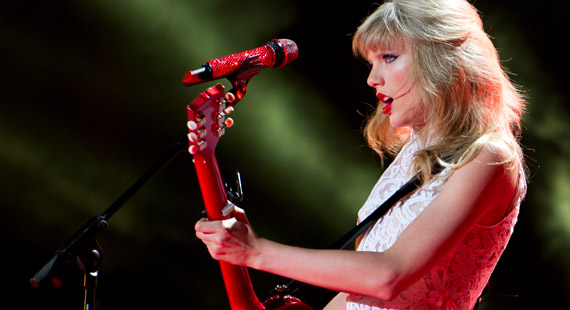We’ve Heard About Fair Trade Food, But What About Fair Trade Music?

Being an ethical music consumer in the 21st Century is by no means an easy feat. With high-profile artists such as Taylor Swift publicly pulling her catalogue from Spotify (among other less-covered defections) and the ensuing debate about whether or not this was ‘good for music’, it’s become clear that the morals of the music industry have never been cloudier.
Chief among the concerns of musicians and music industry workers is the plummeting profits that end up in performer’s pockets. In 2014, it is perfectly legal (and entirely socially acceptable) to stream an artist’s songs for nothing and not contribute a dime or a dollar towards the gruelling creative process that goes behind it. Those defenders of streaming who find themselves more at ease with “the future of music” than others will often cite free, online music as a pathway to other revenue — concert attendance and merchandise sales, for example.
But for some critics of the status quo, the answer to this ethical conundrum is to take a similar approach to the one we often take with food producers in developing countries. If the coffee farmer in West Africa and the struggling artisan musician are both in less than rosy circumstances, and are receiving what we might call a ‘less than fair share’ of the profits, then perhaps a similar approach is required.
One such group of critics is the group Fair Trade Music, an organisation based out of Seattle but founded in Portland, Oregon which aims to address the continuing imbalance that smaller, more independent performers face when negotiating their way through an already torturous music industry.
Somewhat uniquely, their gripes don’t just revolve around the internet age and the plateful of problems that it throws up. Villainous venues are in their sights too. In their own words, “many clubs reap substantial profit from bands drawing in hundreds of paying customers, but pay little or nothing. At the same time, bands are expected to do all their own promotion and bring in the club’s audience–work formerly reserved for the music venues.”
So where exactly does the Fair Trade crusade come to the rescue? Mostly in raising awareness and certifying venues as “Fair Trade” when they “pay wages and benefits that are fair to both the musicians and the venue — that respect the livelihood of the performers, yet don’t put the venue out of business.” How exactly can one come to a conclusion that a venue is Fair Trade (or more embarrassingly, un-Fair Trade)? Apparently the process is entirely democratic and decided on a vote within each local Fair Trade Music group or “chapter.” Judgements and considerations are made for the venue’s size, profits and attendance, allowing for a certain degree of fairness and an allowance for individual circumstance.
The efforts of Fair Trade Music to ensure a music industry that serves it’s producers as well as it’s consumers are laudable and it’s a movement that has the chance to create real change. The movement took centre stage in last month’s report unveiled at CIAM’s 2014 Conference in Nashville, “Fair Compensation for Music Creators in the Digital Age”, where Fair Trade Music was outlined as a key method of changing the music industry without relying on the slow, vested-interest ridden world of policy-makers and politicians. Professor Pierre-E. Lalonde, who authored the report, marked out the initiative as a way forward that could learn from the widely known Fair Trade goods and services movement.
“A more equitable future lies in the application and acceptance of simple ethical practices by all who inhabit the music landscape — from creators to consumers and all those in between.” writes Professor Lalonde. “The success of the “Fair Trade” movement has demonstrated consumers’ willingness to make ethical choices when given a simple, understandable option to do so.”
Surprisingly, the emphasis on ethical ‘consumer choice’ is something that these guys have in common with the avidly pro-streaming crowd. Both emphasize the role of the music buyer in making enlightened, moral music purchases in the face of zero-benefit options like piracy. Although, unlike Fair Trade Music, we are all essentially bribed to use services like Spotify (a kind of upgraded piracy) with minor nuisances removed if you’re willing to pay a pitiful $10 a month.
Fair Trade contains no obvious benefit for us music buyers other than a glowing, shiny feeling in our tummies when we buy a record, or attend a gig that we’re assured is partaking in a ‘fair deal’ for it’s musicians. Which sadly is too often the story with today’s music industry, a two-tier system of consumers. One section where the “ethical” consumers reside, those who pay above and beyond for their sounds, contribute to all sorts of music Kickstarters and partake in various pro-industry events and schemes. And then there’s the rest of us, a much larger group who log on, stream or download, and then leave it at that. Until we manage to convert a sizeable chunk of the second group to join the first, undervalued music and under-compensated performers will probably remain an issue for years – even decades – to come.

Good article and an interesting initiative. I wonder if it can gain critical mass or if consumers even care. I can see a certain subset of listeners subscribing to this Free Trade approach, but the masses have become so used to cheap/free music after a decade of living off of it, I don’t know that there’s a way to pop that genie back in the bottle.